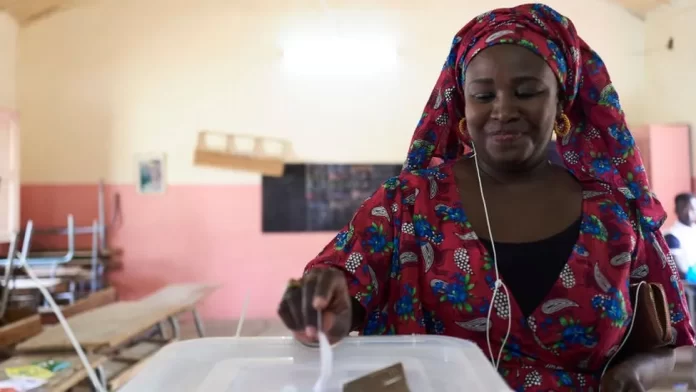
Senegal’s reputation as a bastion of democracy in an unstable region is on the line after protesters clashed with riot police outside parliament on Monday.
Inside, lawmakers passed a contentious bill to extend President Macky Sall’s tenure and delay elections after he called off a planned election with just three weeks to go.
The opposition say some of their members were forcibly removed from the parliament building by police in riot gear to stop them from voting.
Khalifa Sall, a leading opponent and a former mayor of Dakar, who is not related to the president, called the delay a “constitutional coup” and urged people to protest against it. His political coalition has vowed to go to court.
Thierno Alassane Sall, another candidate, also no relation, called it “high treason” and urged his supporters to gather in front of the National Assembly to protest and “remind MPs to stand on the right side of history”.
The proposal needed the support of three-fifths (i.e. 99) of the 165 deputies to pass. The ruling Benno Bokk Yakaar coalition, of which President Sall’s Alliance for the Republic party is part, has a slight majority in parliament.
In the end 105 MPs voted for the proposal. A six-month postponement was originally proposed, but a last-minute amendment extended it to 10 months, or 15 December.
Mr Sall reiterated that he was not planning to run for office again. But his critics accuse him of either trying to cling on to power or unfairly influencing whoever succeeds him.
No sooner had he announced the unprecedented postponement than protesters marched across the capital, Dakar, to call for a reversal. At least 150 people have been arrested in the past two days.
West Africa’s regional bloc Ecowas on Tuesday pleaded for Senegal’s political class to “take steps urgently to restore the electoral calendar” in line with the constitution.
Former Prime Minister Aminata Touré condemned the passage of the bill in a
President Sall has delayed the general elections in Senegal by six months
Senegal has long been seen as one of the most stable democracies in West Africa.
It is the only country in mainland West Africa that has never had a military coup. It has had three largely peaceful handovers of power and never delayed a presidential election.
Until now.
In 2017, Senegalese troops led the West African mission sent to neighbouring The Gambia to force out long-time ruler Yahya Jammeh after he refused to accept he had lost an election. And in a region beset by coups, President Sall has been a key actor in the push by Ecowas to force military leaders to conduct elections and hand over power to civilians.
But Senegal’s democratic credentials now hang in the balance, and a constitutional crisis is brewing. The country faces a critical test of its electoral integrity and judicial independence, analysts say.
Tensions have been rising for more than two years following what the opposition say was a deliberate attempt to exclude them from the election by having their candidates charged with crimes they had not committed. One major opposition party was even banned.
The authorities have denied using the legal system for political gain and President Sall said he was trying to calm things down by delaying the vote but this does not appear to have worked so far.
“The decision has thrown Senegal into uncharted waters of a constitutional crisis,” Mucahid Durmaz, senior West Africa analyst at risk intelligence company Verisk Maplecroft, tells the BBC.
“The constitution requires elections to be organised at least 30 days before the end of the incumbent president’s mandate. Sall’s rule expires on 2 April. And the decree detailing the electoral calendar must be released 80 days before the vote takes place. Even if he appoints a transitional president after 2 April, the legality of it will be disputed.”
Authorities restricted access to mobile internet services on Monday to prevent what they called “hateful and subversive messages” from spreading online and posing a threat to public order – in other words to make it harder for protesters to organise.
Reporting by BBC





















